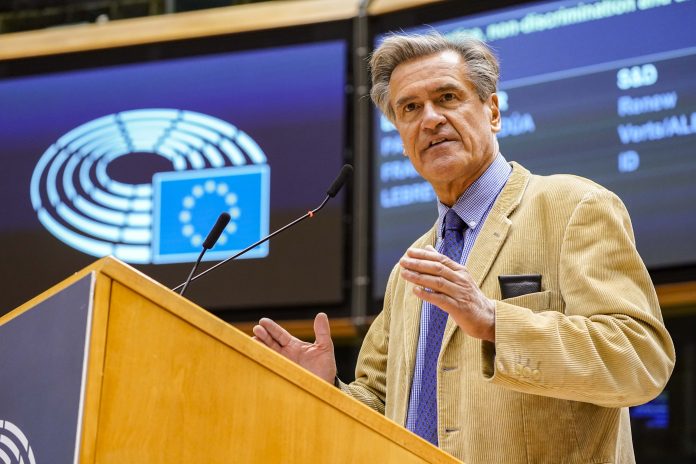The EP and Council have reached an agreement on not accepting passports and other travel documents issued by Russia in illegally-occupied areas of Ukraine and Georgia.
Today, negotiating teams from the European Parliament and the Council of the EU reached an agreement on a legislative proposal on the non-recognition of travel documents issued by Russia in occupied Ukrainian regions and so-called breakaway territories of Georgia, for the purposes of issuing visas or crossing the EU’s external borders. According to the proposal, the Commission should consult EU member states and draw up a list of Russian travel documents, notably passports, that should not be accepted going forward.
Right to enter the EU on humanitarian grounds
After agreeing to fast-track the proposal, MEPs requested amendments to the proposal, especially emphasising the right of everyone fleeing the conflict in Ukraine to enter the EU on humanitarian grounds.
After the vote, rapporteur Juan Fernando López Aguilar (S&D, ES) said: “The European Parliament is committed to doing its utmost to continue to exert pressure against Russia through legal and political means to make sure Putin pays a high price for this illegal war and for the international crimes committed against Ukraine and its people.”
Next, the Civil Liberties Committee and the European Parliament plenary will need to endorse the trilogue agreement. Once it has also been officially adopted by the Council and published in the Official Journal of the EU, it will enter into force on the day after its publication.
Russia has been issuing passports to residents of Crimea since the illegal annexation of the Crimean peninsula in 2014, and it is currently doing so in other non-government-controlled areas of Ukraine. The non-recognition of these Russian passports would apply when someone requests a visa to enter the EU or when they cross the EU’s external borders.
According to the Commission, almost all member states have already stated that they do not accept Russian passports issued in occupied foreign regions. The proposal aims to produce legal certainty and a coordinated, consistent approach.

